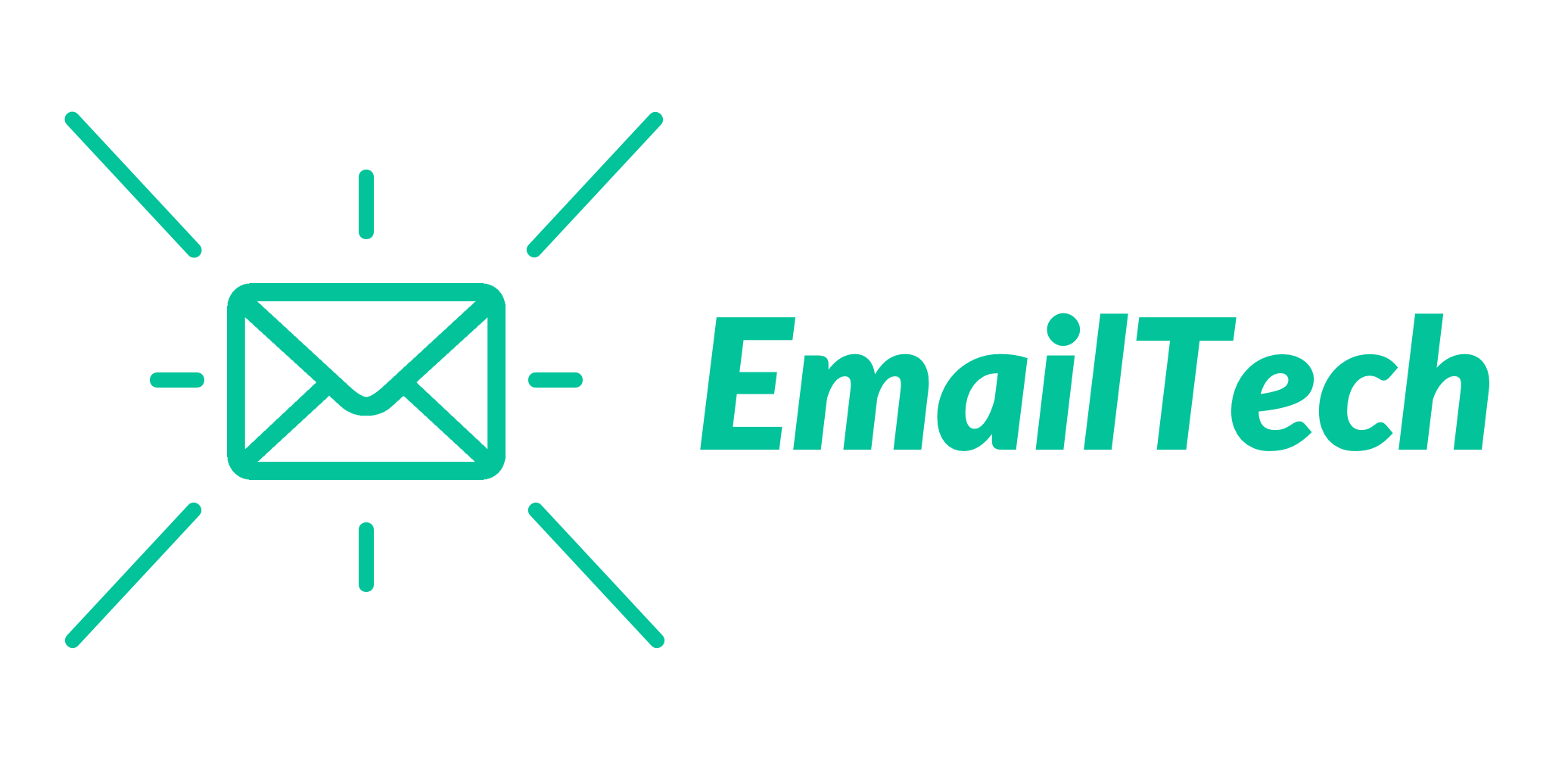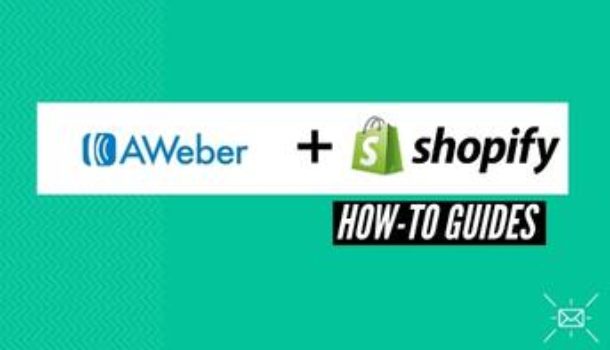If you want to enhance your online store brand, you can’t go wrong with the Aweber Shopify integration. Packed with a selection of up to 700 pre-built email templates, the marketing tools allow you to send unique marketing campaigns to your customer. However, this is not all the platform offers.
Designed with an intuitive interface, the integration makes it easy to build campaigns for your online store within minutes – so you can focus on more complex tasks. Furthermore, the tool offers a range of powerful ready-made signup forms and superior segmentation to further boost your workflows.
Additionally, extra campaign features such as cart abandonment allow you to retain customers whilst features such as coupons, discounted codes, and free content allow you to boost sales and retain customers.
Yet, the Aweber Shopify integration is not all about facilitating campaign building and automations. It features a comprehensive site tracking design that gives you deeper insights into how your store’s performance and where to improve. So, to get you on the right track – we’ve shared a guide on how to integrate the Aweber Shopify integration with your Shopify store.
Key Aweber Features
To make full use of the Shopify Aweber integration, you want to learn about the key features it offers. Among the key features include contact syncing, attribute mapping, single/double opt-in confirmation, and a comprehensive site tracking performance.
Contact Syncing
The Aweber integration with Shopify offers automatic 2-way contact sync. As soon as you connect the two apps, you will be able to access your synchronize contacts in the Aweber contact list and setup automation triggers as soon as you can.
What makes the Aweber and Shopify integration as well as contact syncing process special is the smooth process. No coding or other technological experience is needed to execute this connection. Furthermore, as soon as the connection is done, you will enjoy tag support.
Attribute Mapping
Aweber suppers boolean attribute mapping – which gives you useful insights into your customer needs. The tool allows you to collect data based on Yes/No answers and even set up attribute custom fields in your store’s account, cart, and sign up page to collect the information.
Single/Double Opt-in confirmation
Aweber offers the choice to set up single or double opt-in confirmation. However, the double opt-in confirmation is a more popular option. With the double opt-in confirmation, your online store’s site meets universal requirements – as some countries require that an ecommerce site offer a double opt-in confirmation.
Furthermore, using double opt-in confirmation for your subscribers is a great way to gauge their commitment – as they have to go through a 2-step sign up and email confirmation process.
Tracking
Aweber offers a comprehensive site tracking function – providing you with metrics across different parameters. But, Aweber’s strong tracking feature is its special sales tracking feature. The Aweber sales tracking allows you to track the number of sales you collect from your customers – simply activate the Aweber’s Sales Tracking JavaScript to enjoy this function.
How To Set Up The Integration
Setting up the Aweber and Shopify integration is quite easy. Below are clear instructions on how to do so.
- Log in to your Aweber account and click on Integrations at the top right corner
- Click on the Shopify Integration under the Available Integrations tab
- Enter your Shopify store URL in the URL section and click on Connect Integration(alternatively, log into your Shopify account and copy the URL from your browser, click on Connect Integration bottom after you enter the correct URL)
- After entering the URL in the section and connecting the integration, you will be redirected to your Shopify account
- Once there, log in and you will be redirected to the confirmation page
- Click install next to the Aweber Add Subscriber app prompt
- You will be redirected to your Aweber account to choose which list to sync
- Use the List drop down menu to choose which customer list to add and specify any special tags you want to set up
- Next, you will set up more subscriber opt-in settings – go to the settings section and select Checkout
- Under the Email Marketing section, check the Preselect the sign up option
- Once you are done with the setting, click on Save
- Next, set up your advanced settings and click on the Add Automation button
Comparison With Other Shopify Integrations
Aweber doesn’t offer a Shopify integration in its free plan. Thus, to enjoy this service for your Shopify store, you want to opt for a paid plan. The minimum you can go for is the Pro plan which covers up to 500 subscribers for only $16.15 per month. Each plan is billed annually. Alternatively, if you want to opt for third party plugins for select features, you can opt for tools such as Zapier, Automate.io, or Combidesk which charge around $5 per month. Most of them offer a 30-day free trial as well.
Aweber integration for Shopify has alternatives too. Sure, the marketing tool comes with a heap of features including 700+ email templates, unique sales tracking features, and increased automation options. Nonetheless, it still lacks several features sought after by some business owners. The most reasonable alternatives for Aweber include Sendinblue and MailChimp.
Whilst Sendinblue offers powerful marketing and automation features, it also boasts its own unique features. Sendinblue is known for its popular transaction email and SMS features. The tool allows you to integrate transactional email and SMS via its API – for real time communication with your customer based on their activity on your site.
Furthermore, Sendinblue provides extensive data analytics with A/B testing to try out elements in your images, headlines, and other page components. When it comes to the pricing, Sendinblue is a little bit more expensive than Aweber. For the lowest plan, you will pay a minimum of $25 per month with up to 40,000 emails per month. At highest plan covers up to 120,000 emails per month and costs a minimum of $66.
Mailchimp doesn’t offer native integration with Shopify. Yet, surprisingly, their integration with ShopSynch and other third party apps offers great value for your Shopify store. It comes with no surprise that MailChimp is amongst the top rated marketing tool for Shopify integration. After all, it is packed with unique and high optimized features such as email marketing, landing pages, and unique campaign templates.
MailChimp does a great job at social media ads as well. What makes the MailChimp Shopify integration unique is that you have the option to use the integration for free. With an email sending cap of 12,000 a month, and up to 2,000 subscribers, you can connect MailChimp with Shopify for free.
Funny enough, the free Shopify MailChimp integration offers more features than its alternative paid integrations. In addition to the free integration, you can choose to integrate MailChimp and Shopify using three other methods. However, these methods are paid for and offer varied features.
Whilst the ShopSync integration covers all features including contact sync, purchase activity segmentation, ecommerce tracking, and reports, product content block, Google remarketing ads, and merge tags, just to mention a few. The alternative paid third party integrations on the other end offer sync contacts, purchase activity segmentation, order notifications, and abandoned cart automations, at most.
Conclusion
The Aweber Shopify integration works for any online business model and size – whether you have a small or enterprise level business. However, its strongest features work best for Shopify owners that are looking to get more creative with their marketing processes. With over 700 email marketing templates, the MailChimp integration offers a field day to any creative mind.
It also allows you to curate different campaigns to capture your customer’s attention. To make it easier for any member of the team to navigate it, the tool offers a friendly user interface and workflows that only take minutes to set up. Whilst Aweber offers powerful and unique campaign designs, it balances it with an extensive sales tracking feature – to give you an understating of how our creative campaigns are effective.
Nevertheless, if MailChimp doesn’t work for you, you still have the option of powerful alternatives. With the Sendinblue Shopify integration, your Shopify store will have access to transactional SMS and emailing options – giving you real time communication with your customers. Additionally, Sendinblue offers powerful A/B testing to ensure your campaigns and site setup are effective. MailChimp on the other end offers a powerful marketing tool option at no cost.
Whilst it doesn’t offer native integration with Shopify, the third party integration still delivers a selection of useful features to boost your online store. In fact, the MailChimp Shopify integration is perfect for a small business or a start up on a tight budget – covering up to 2,000 subscribers and 12,000 emails at no cost.

